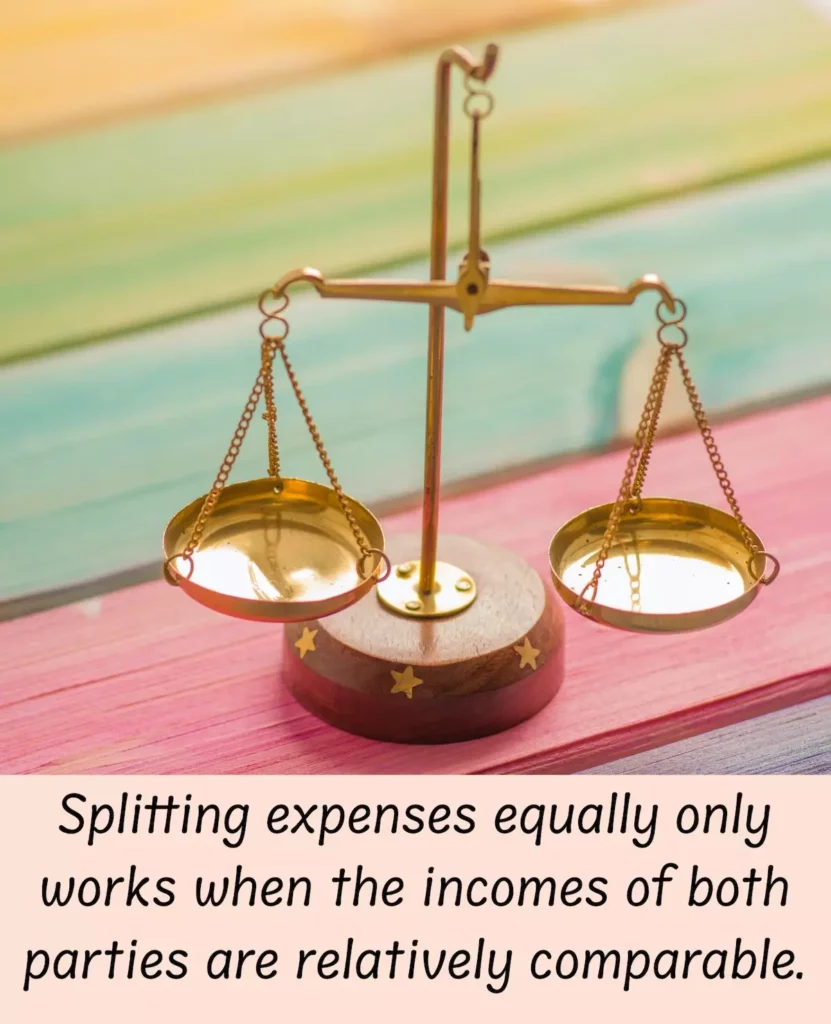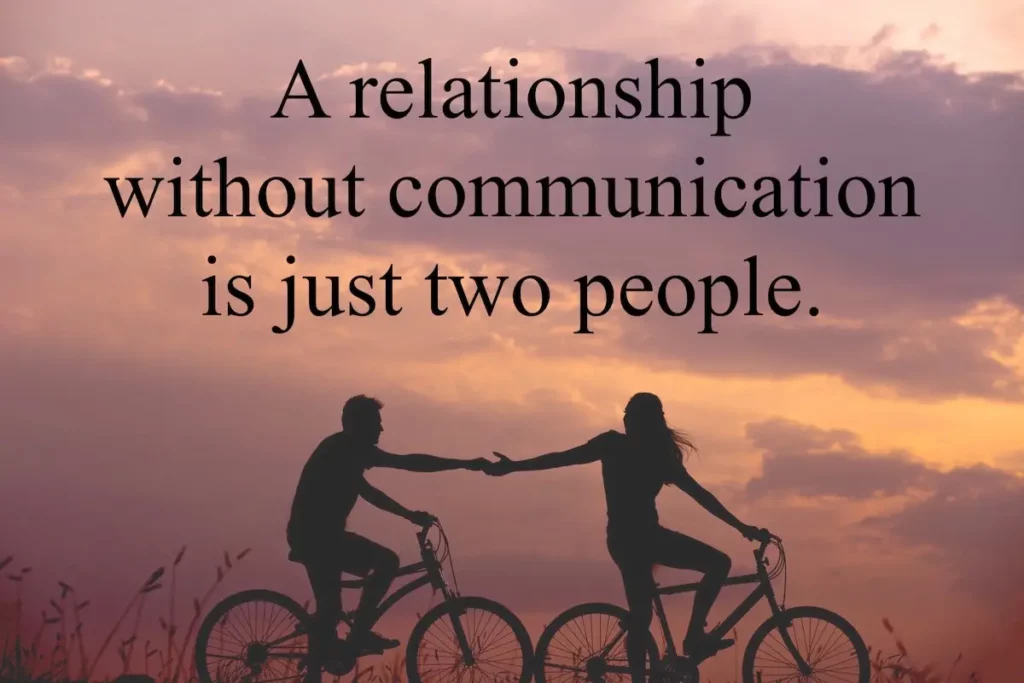Many singles find it hard to manage their finances as it is. Imagine couples with different money values and habits. If one party is very careful with money while the other is extravagant, what do you think is going to happen?
I can easily sum up how Mr Wow and I manage our finances in a sentence — We see ourselves as one and are united on all money matters. It wasn’t always the case though. Like many married couples, we have had our fair share of money disagreements, but we found ways to resolve our differences.
It shouldn’t come as a surprise that many people do not see eye to eye with their spouses where money is concerned. Yes, it’s a problem, but it’s also an opportunity.
It’s a problem because many nasty marital conflicts arise when couples cannot agree on how their finances should be managed. Some couples, regrettably, will never find common ground.
It’s an opportunity because if both parties can somehow iron out their differences and tap each other’s knowledge and skills, they will be more effective and powerful as a team than alone, thereby reaching their financial goals sooner and creating a life they love together.

Mr Wow and I are not relationship experts, but we do have the accumulated wisdom of more than 20 years of marriage. I hope that by sharing our experience, you will be inspired to improve your financial compatibility with your significant other and make money decisions that are acceptable and beneficial to the both of you.
- Tales of Woe
- Why the Recurring Disagreements about Money
- How We Found Our Financial Rhythm
- You Too Can Find Your Financial Rhythm
1. Tales of Woe
Let me start by sharing a recent experience. I was at a gathering with Mr Wow during the Chinese New Year period. After dinner, the wives (five of us) adjourned to the rooftop terrace while the husbands drank whisky in the living room.
Everyone could tell that Wife A was not in the best of mood. After a few sips of wine, she shared that she had quarrelled with Husband A earlier that day. To cut the long story short, it all started when he scolded her for overspending on Chinese New Year decorations, especially the two Kumquat trees in the living room. She felt that he had no right to be angry as she was spending her own money, not his.
Wife B also had tales of woe. Both she and Husband B are high-income earners and big spenders. She gets incredibly irritated whenever he complains about her shopping because she has never once complained about his expensive whisky, wines and cigars.
Wife C began to lament too. Husband C is way too happy-go-lucky. He doesn’t really plan for the future and she’s the one managing their expenses and saving for their two kids.
Wife D got very emotional suddenly. Although Husband D earns more than double her salary, he still insists on splitting all joint expenses down the middle (i.e. 50-50) because they are (quote) ‘a team’. She’s not happy with the situation but is sick and tired of talking to him about it.
I listened and kept my mouth shut. It wasn’t because I had nothing to say. I was just worried that I would end up saying the wrong thing and rubbing salt into the wound. Furthermore, most people do not actually want advice or solutions. More often than not, they merely want to blow off some steam by voicing their grievances.
Still, I feel impelled to write this article as I know many couples out there share the same problems. Mr Wow and I used to face some of them ourselves and it took us many years to reconcile our differences and be on the same financial page.
2. Why the Recurring Disagreements about Money
Financial Incompatibility
When couples have recurring disagreements about their finances, it’s not always due to the lack of money. In many cases, it’s because they do not approve of each other’s money management approach and this has a huge impact on the quality of their marriage. It’s like Husband and Wife A. When one likes to save while the other likes to spend, tensions are bound to arise. Unlike magnets, frugality and extravagance repel rather than attract.

When Mr Wow and I first got married, he was actually the more frugal one. Believe it or not, I used to be a real clothes horse, spending a significant portion of my monthly salary on clothes, shoes and handbags. Every time Mr Wow talked about the importance of saving money, I would feel a tinge of annoyance. The truth is, I often suffered from shopper’s guilt, so the last thing I needed was a lecture from my dear husband. Thankfully, that part of me died a natural death when I started saving aggressively for our first business venture.
Sometimes, financial incompatibility is not about differences in spending habits but a mismatch of aspirations and expectations, e.g. Husband and Wife C. Frustration and resentment could set in if one party is very motivated to accumulate wealth while the other is not as driven.
Sometimes, financial incompatibility is not about differences in spending habits but a mismatch of aspirations and expectations.
Check out: The Compulsive Consumer vs the Austere Saver
Financial Autonomy
This may arouse the ire of some folks, but I think our need to preserve financial autonomy is another cause of many money squabbles in a marriage. At least, that was the case for Mr Wow and me for a good decade.
When Mr Wow and I did our marriage preparation course, our mentors told us that most couples prefer to preserve some sort of financial autonomy, as opposed to a full merger. Having their own money allows them to continue to fulfil their individual financial obligations (e.g. student loans) and helps to prevent disagreements over spending habits. There’s no right or wrong answer as long as both parties are happy and comfortable with the arrangement.
Awesome! Financial autonomy was exactly what Mr Wow and I had in mind! We would manage our own money but create one joint account for household expenses (50-50 split) and another for savings/emergency fund (50-50 contribution).
As it transpired, this ‘yours, mine and ours’ system was anything but awesome. We clearly had a lot to learn about each other and marriage.
► Problem 1: Poor Savings Plan
Let’s start with the issue of savings. In the first two years of our marriage, Mr Wow and I each contributed $250 a month to our joint savings account. (Every cent eventually went into our first business, which ended in failure, but that’s another story.) To be frank, we could have doubled that amount and Mr Wow was more than happy to do so. However, I was reluctant as I wanted to have my own savings and enough money to spend without having to justify myself to him too much.

You can say that between the two of us, I was the more individualistic one and the different mindset definitely created some tension. A healthy marriage requires a willingness to share everything, but it was clear that I wasn’t ready to share my money any more than necessary. I knew I wasn’t sending Mr Wow a positive message, but I held onto my beliefs tightly.
A healthy marriage requires a willingness to share everything, but it was clear that I wasn’t ready to share my money any more than necessary.
Thankfully, we did get one thing right, i.e. opening a separate savings account. Some couples only have one joint account for shared expenses, so saving money is left to the individual. That’s not the most prudent approach as there’s always a chance that both parties might not save at all. Others combine savings and expenses, so the surplus after the deduction of expenses is basically their collective savings. Such a system is also flawed as some couples might not be able to resist the temptation of dipping into their ‘spare cash’ for non-essential items. Instead of sticking to their budget and growing their stash, they end up overspending every other month.
Some couples only have one joint account for shared expenses, so saving money is left to the individual. Others combine savings and expenses, so the surplus after the deduction of expenses is basically their collective savings.
Either way, in the event of an unexpected expense, e.g. a medical emergency or a major auto repair, they might not have enough joint savings to deal with the situation. What’s going to happen if they do not even have personal savings to fall back on? Would they launch into furious tirades about each other’s handling, or rather, mishandling of finances?
► Problem 2: Lack of Money Conversations
Our upbringing and experiences greatly influence the way we perceive and feel about money. This, in turn, affects our ability to discuss financial matters with our spouses. For instance, some people are extremely uncomfortable engaging in money conversations. To them, money is a taboo topic and it’s sensitive or rude to talk about it openly.
Financial autonomy further reduces the need to communicate because both parties feel a sense of personal freedom to operate and make decisions according to their own inclinations and desires. Many (not all) also feel that they do not owe the other party any explanation. As long as they pay for shared expenses, they can use their money as they please — no consultation or permission required.
Financial autonomy further reduces the need to communicate because both parties feel a sense of personal freedom to do things according to their own inclinations and desires.
So if a wife shops too much, her husband cannot take issue with her spending if she’s using her own money. Likewise, if he lends his slothful friend $20,000 of his own money, she has no right to question. Doesn’t seem right, does it?
When there’s little spirit of collectivity, there’s less reason to communicate. But marriage is a partnership and partners communicate. Partners also experience financial consequences together, whether it’s the doing of one or both parties. If one partner overspends and runs up massive credit debts, can the other not bail him or her out? If communication only happens when there’s a crisis, isn’t it a tad late in the day?

► Problem 3: It’s Never Fair
Splitting expenses right down the middle is also problematic. It always seems like a good idea at first, especially if both parties earn more or less the same amount. Nevertheless, a person’s income is not stagnant. Over time, the income gap between a couple will probably widen, so a 50-50 split may no longer seem fair to the one making less money. This is especially so if the discrepancy in earnings is significant like Husband and Wife D.

What would you do if you were in this situation? I think some people won’t even raise the issue to their spouses directly as they are not used to having money conversations and do not know how to begin. They also do not want to appear calculating or resentful.
I chose to talk to Mr Wow about it. At that time, his income was approximately 50% more than mine. Blame it on my poor choice of words. Mr Wow was quite hurt and said he would pay for everything from then on.
‘No no no… that’s not what I want!’ I tried my best to explain. ‘I’m not angry with you! It’s just that our expenses have gone up, so I think splitting expenses proportional to income is more sustainable than half-half. It doesn’t have to be exact… I’m open to discussion…’
We eventually restructured to a 60-40 split.
I must say I’m really fortunate as Mr Wow is a very understanding and receptive person. This makes it easy to discuss sensitive issues with him candidly and come up with solutions together. But not everyone is like Mr Wow. Some people’s version of fair partnership is to split expenses evenly regardless of who earns more and they are very adamant about it. What then? Would couples in this situation let income differences divide them?
Some people’s version of fair partnership is to split expenses evenly regardless of who earns more and they are very adamant about it.
If you think I was being calculating, please hear me out. I would not have proposed the change if my sole motivation was to have more money for myself. I meant what I said — splitting expenses 50-50 is unsustainable in the long run — and Mr Wow agreed that it’s not good for our relationship.
An equal split, ironically, does not lead to equality. In fact, it has the exact opposite effect. Put it this way. There’s a reason why the rich pay more taxes than the average Joe. Even then, economic inequality is one of the biggest issues on many people’s minds. Imagine a situation in which wealth is distributed in a highly unequal fashion, e.g. only one tax bracket for everyone, from the ultra-rich to those at the lowest rung of the social ladder. Won’t there be civil unrest?
An equal split, ironically, does not lead to equality. In fact, it has the exact opposite effect.
When a couple splits expenses equally despite a widening income gap, it introduces economic inequality within the household. It’s only a matter of time before it becomes painfully obvious. The one with more income not only has greater spending power but is also getting richer. The one with less income can’t seem to catch up and feels lousy. It affects the state of mind and destabilises the relationship.
That’s right. Sometimes, it’s not even about the money. Many women often cut back on work to raise their children. It’s extremely discouraging and demoralising if they are still expected to allocate the same amount for expenses despite the personal sacrifice.
If economic inequality can bring about social division and turmoil to a country, it certainly can cause considerable friction between a couple. It’s best to address the issue early and nip it in the bud.
If economic inequality can bring about social division and turmoil to a country, it certainly can cause considerable friction between a couple.
Frankly, even though splitting expenses based on proportion of income is more sustainable than 50-50, it is also not ideal and could lead to other complications. Assuming one party is paying 70% while the other is paying 30%, would the one contributing more develop the ‘majority shareholder’ mentality and behave as if he or she has more say when it comes to making financial decisions? Or would the one contributing less feel that he or she has no right to comment?
Even though splitting expenses based on proportion of income is more sustainable than 50-50, it is also not ideal and could lead to other complications.
This problem is close to home as it’s exactly how my parents operate. My dad who’s the sole breadwinner makes all financial decisions without consulting my mum. Instead of being upset, my mum always says, ‘Your dad is the one bringing home the bacon and he has always been generous to me. I don’t earn a cent, so I should just keep quiet. If you rely on your husband financially, you really have to pray that you married the right man. It’s best to have your own money.’
I’ve been listening to the above since young. Somehow, my dear mum doesn’t think that nurturing her kids is a major contribution and that she has every right as a wife to be involved in financial decisions, with or without an income. To her, no monetary contribution means no say. What rubbish!
But whether we like it or not, want to or not, we often take after our parents. Now you know why I was unwilling to inject more money into my joint savings account with Mr Wow. I wanted to have my own savings, my ‘just in case I married a jerk’ money. My money is my protection, my safety net, my independence as a woman.
Now you know why I was unwilling to inject more money into our joint savings account. I wanted to have my own savings, my ‘just in case I married a jerk’ money.
All of us have our own money history and hang-ups, which is why many couples struggle to find financial footing. Managing money in a marriage is really more complex than most people think.
3. How We Found Our Financial Rhythm
Talk, Understand and Compromise
A couple, no matter how compatible and in love, are still two separate individuals. There will be differences, in particular financial ones, so if they want a happy marriage, they will have to find common ground and work towards the same goals. The first and most important step to take is to communicate regularly.
It helps a great deal that both Mr Wow and I believe in open dialogue and have absolutely no qualms about having money discussions. We also make it a point to listen to each other’s inputs and give our honest opinions. Despite arguing every now and then, we always keep the conversations going. Over time, this has helped to create greater understanding and empathy.
Mr Wow and I believe in open dialogue and have absolutely no qualms about having money discussions.
For example, Mr Wow couldn’t understand why I was so focused on having my own savings plan at first. Logically speaking, we should pour more money into our joint savings account to enjoy higher interest rates. He felt that I was still thinking like a single rather than a married person. Naturally, he was quite bothered. It was only after numerous sharing sessions that he learnt more about my upbringing and how my parents’ money management approach impacted me. He eventually told me that it was ok to stick to my plan. I really appreciate this understanding side of him.

When you’re married, you’re not running your own show anymore. You have to be a team player and discuss money matters with your significant other. If you don’t communicate, there’s no way that your goals can ever align. If you only communicate when a crisis strikes, there will only be tears and bitter recrimination.
If you don’t communicate, there’s no way that your goals can ever align.
If you’re not used to talking about money, my suggestion is to fix a regular meeting/date, e.g. every first Friday of the month. Make it intentional; otherwise, you will just cast it aside and forget about it. And remember: communication includes listening, not just talking. I’m sure you’ve heard this before. God gave each of us two ears and one mouth for a reason.
Full Financial Merger
It happened in 2012. I cannot remember which day it was. I woke up and said to Mr Wow, ‘Let’s merge all our money.’
Mr Wow was very surprised, but he understood me well enough to know that I must have thought about it for quite some time. He smiled at me and replied, ’Ok then, let’s hear your plan!’
So what changed my mind?
Let’s start with the conviction that women must always have their own money so that they will not be at the mercy of their husbands. I realised that my mum wasn’t the only one advocating this. My mother-in-law, my aunts, my friends all share the same belief. It’s something that has become deeply entrenched over the years, so how did I get past it?
I get where most of these women are coming from and I still think couples should maintain their own savings for at least the first few years of their marriage despite the potential problems. If both parties are happy with the money management system they have built, there’s no need to change things.
Mr Wow and I were happy, so why would I want a full merger after 11 years of marriage? Simply put, it was a show of my trust in him and my commitment to our marriage.
It dawned on me that couples usually combine their money for two reasons. The more common reason is that it’s a matter of necessity, e.g. one of them stops working for whatever reason or they need to pool all their resources to make ends meet. The less common reason is that there’s high relationship satisfaction — a sense of confidence and permanence, so to speak.
At that time, I felt that Mr Wow and I had reached that level of relationship satisfaction. I trust him with my life, so why not my money? So it’s not that I had a total mindset shift; my decision has more to do with my relationship dynamics with Mr Wow.
At that time, I felt that Mr Wow and I had reached that level of relationship satisfaction. I trust him with my life, so why not my money?
Now the question I get the most: Do you regret your decision?
The answer is an unequivocal NO. Even when I was generating a lot of profit for our business, I was happy to share. There’s no mine or his, only ours.
Strangely, no one has ever asked me the most important question: How has the merger enhanced your relationship?
Honestly, without any exaggeration, the merger was a game changer for our marriage and money. Emotionally, we both felt a deeper sense of fulfilment after that. That invisible line that separated us was finally gone and there was greater openness. Instead of feeling like we had given up control over our money, we felt empowered as a team. It was as if we promoted ourselves from Minor League Baseball to Major League.

There are several tangible benefits too. Since combining our account, we have been able to optimise our three joint accounts for expenses, savings and investments, and earn higher interest rates. It’s also easier to track our expenses and saving rate.
As we invest as a team, we also tap each other’s skills (Mr Wow does the technical analysis while I do the fundamental analysis) and make all investment decisions together. There’s no individual victory, only mutual bottom line.
The financial merger has, without doubt, increased our interdependence as a couple and pulled us closer to each other. Today, our financial goals are completely aligned and we are living our shared retirement dreams.
4. You Too Can Find Your Financial Rhythm
I’m not suggesting that you should go ahead and combine your finances with your spouse’s tomorrow. What works for Mr Wow and me might not work for you. If you have certain hang-ups or do not have confidence in your marriage, you definitely SHOULD NOT do it. Although it’s not irrevocable, you really don’t want to make a decision like that and regret it.
Finding financial rhythm with your spouse does not necessarily involve a total money merger. The two of you just need to establish a system that you are happy with. No method is perfect, so it’s up to you to navigate the problems and solve them together.
I cannot emphasis this enough — having frequent money conversations is of paramount importance. When communicating, remember to put yourself in your spouse’s shoes and avoid passing judgement. Listen to him or her; you married this person for a reason. For more practical tips, read my previous article 6 Money Management Tips for a Healthy Relationship.
To end this lengthy article, I would like to reiterate a point that I made at the beginning and that is you have a choice. You can choose to see your money differences as a problem or an opportunity, and how you see it will determine your course of action. Mr Wow and I made our choice.
We wish you everlasting happiness and an abundance of wealth in your marriage.

How do you resolve your money differences with your partner? Share with us in the comment section below.
Check out: Do We Really Need an Engagement Ring? | Admit It: Money CAN Buy Happiness

